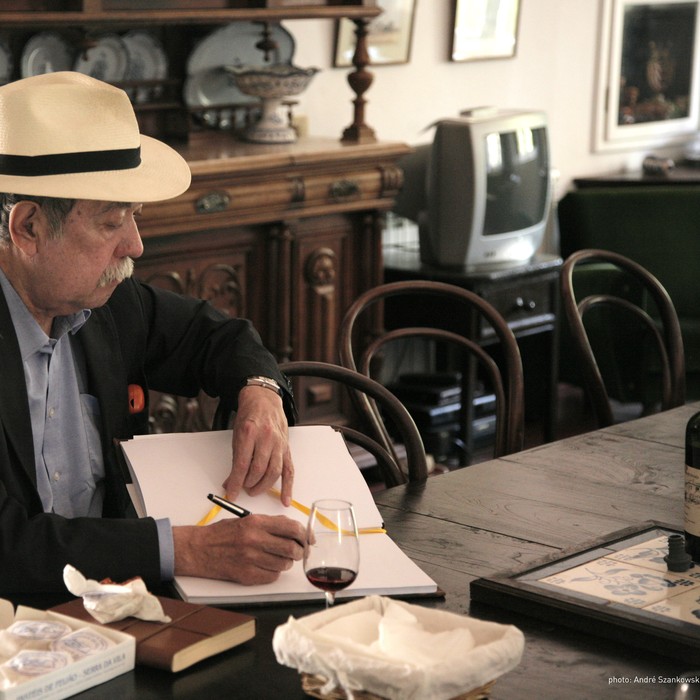
Visiting artist professor
1997 - 1998
Raoul Ruiz
Born in 1941 in Puerto Montt (Chile)
At the age of 5, Raoul Ruiz suffered the beginnings of tuberculosis, which led his family to leave Santiago and live in the countryside. His father, a captain in the merchant navy, gave him a 22 long rifle and a cinema projector. Nourished by literature (Kafka, Poe), Ruiz studied law and theology and wrote dozens of avant-garde plays. His first feature film Tres tristes tigres, which traces the intertwined destinies of three Santiago residents, won the Golden Leopard at Locarno in 1969, the year he married his collaborator Valeria Sarmiento. A socialist activist, the apprentice filmmaker became film adviser to Allende's party at the same time. But he left Chile in the wake of Pinochet's coup d'état.
In 1974, Raoul Ruiz moved to Paris to make Dialogue d'exilés, a film inspired by his experience as a political refugee. Drawing on the writings of philosopher Pierre Klossowski, he produced cerebral but not humourless works: La Vocation suspendue (1977), the story of an abbot troubled by the ideological quarrels in his religious community, followed by L'Hypothèse du tableau volé* (1978), a reflection on art and its secrets. Steeped in surrealism, Ruiz opted for a lighter vein in the early 1980s, shooting adventure stories in which he gave free rein to his imagination: These included Les Trois couronnes du matelot (The Sailor's Three Crowns) in 1982, La Ville des pirates (The City of Pirates) - starring a child played by debutant Melvil Poupaud, the director's favourite actor - and L'Oeil qui ment (The Lying Eye) in 1993.
Thanks to the presence of Marcello Mastroianni and a selection at the Cannes Film Festival, Trois vies et une seule mort brought Raoul Ruiz greater fame in 1996. Without abandoning the formal daring that had made his reputation - including when he took up the challenge of adapting Proust's Le Temps retrouvé (1999) - the director now shoots in more comfortable conditions, usually in association with producer Paulo Branco. From Michel Piccoli and Catherine Deneuve (Généalogies d'un crime) to Isabelle Huppert (La Comédie de l'innocence), the greatest French actors now populate his dreamlike universe, which also includes a few regulars, notably the whimsical Arielle Dombasle (Les Ames fortes, adapted from Giono in 2001) and Elsa Zylberstein (the biting Ce jour-là).
2004 marked Raoul Ruiz's return to his native country, where he directed Dias de campo, in an intimate vein, followed by the romantic drama Le Domaine perdu. After adapting numerous authors (William Shakespeare -- Richard III, Robert Louis Stevenson -- Treasure Island), he chose to tackle another artistic universe by bringing to the screen the life of Austrian painter Gustave Klimt, to whom John Malkovich lends his features.
His schedule was filled with various projects for Chilean television before he returned to the big screen in 2008 for a French adaptation of a work by Balzac, La Maison Nucingen, in which he reunited with Elsa Zylberstein, this time accompanied by Jean-Marc Barr. Two years later, he launched a major project, prefacing a series with a film of the same name, the Mystères de Lisbonne, a romantic plunge into passions, adventures and revelations in 19th-century Europe. On 19 August 2011, the great Franco-Chilean filmmaker died in Paris following a lung infection, leaving behind a film-testament entitled La Nuit d'en face (2012), which sums up his entire cinematic oeuvre and brings it to a humorous close.
